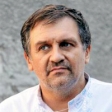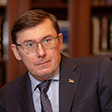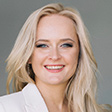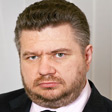"No more business as usual with Moscow!" – Public Statement of Researchers of Post-Soviet Politics
Petitioning TO GOVERNMENTS, CORPORATIONS AND ORGANIZATIONS WITH TRADE OR OTHER RELATIONS TO RUSSIA
"No more business as usual with Moscow!" – Public Statement of Researchers of Post-Soviet Politics
We are scholars and investigators specializing in the domestic politics, cultural life and international affairs of the countries of the post-Soviet space. Given our fundamental sympathy for our research object, we would normally be supportive of as close as possible relationships between the European Union and Russian Federation. We all look forward to the day when Russia can reclaim its legitimate place in the European family of nations, and be fully included in the process of European integration.
Yet, in view of the latest events in Ukraine, we have become worried by an increasingly paradoxical situation. Economic, social and cultural relations between Russia and the EU have, during the last decade, become extensive and are growing further. Russia has, during the last year, however, been more and more openly engaged in policies that undermine the Eastern Partnership program and association policies of the EU in Eastern Europe and the Southern Caucasus. These activities are now culminating in Russia's undisguised meddling on Crimea.
Given this regretful situation, we think that the foundations and purpose of international cooperation and, especially, economic relations with Russia have to be re-assessed. We would like to ask Western and all other – but especially EU member – countries' governments, corporations and organizations to review their current collaboration with the Russian government, state companies and governmental organizations. As the EU is a direct stakeholder in the events that have been unfolding between Russia and Ukraine during the last year, the West cannot simply stay aside and watch.
In particular, we would ask countries and companies buying goods and services from Russia to consider whether such imports should and could be substituted via increased trade with other partners. This call concerns not the least those European states and enterprises that are purchasing Russian raw materials – above all, natural gas – from Russian state corporations or Kremlin-connected private companies.
The reasons for this appeal are obvious: Our countries' trade and cooperation with Moscow may be indirectly supporting the Kremlin in its policies towards such countries as Ukraine, Georgia and Moldova. Moscow is encouraging separatist tendencies in, and then deploying troops to, former Soviet republics thereby actively creating failed states. To be sure, the leaders of the Kremlin's target countries are no angels and have made many mistakes too. Yet, Russia's claim to have invaded these countries in order to secure human rights is implausible in view of the Putin regime's own human rights record, two Chechen wars, and the obviously expansionist aims that underlie these actions. Russia is undermining the European security architecture, international law, and people-to-people relations between Russian citizens and the nations of the invaded countries.
We ask you, therefore, to consider and to discuss with your colleagues whether you, by cooperating with Russian organizations and corporations, want to be an unintended supporter of the Kremlin's endeavors in the former Soviet empire. Your country's and/or company's collaboration with Russia might indirectly provide financial resources, technological means, or political legitimacy for the Kremlin's neo-imperial adventures. Unless you support them, a revision of your relationship to Russia is due.
Some of us are and will be investigating and publicizing the details of Western governments' and corporations' current and future collaboration with the Russian state.
SIGNATORIES
Dimitar Bechev, D. Phil., European Council on Foreign Relations, Bulgaria
Iryna Bekeshkina, Cand. Sc., Institute of Sociology, Ukraine
Uilleam Blacker, Ph. D., University of Oxford, United Kingdom
Giovanna Brogi, Dr. Phil., University of Milan, Italy
Halya Coynash, M. A., Kharkiv Human Rights Group, Ukraine
Olexander Demyanchuk, Dr. Sc., Kyiv-Mohyla Academy, Ukraine
Alexander Etkind, Ph. D., University of Cambridge, United Kingdom
Rory Finnin, Ph. D., University of Cambridge, United Kingdom
Joerg Forbrig, Dr. Phil., German Marshall Fund of the United States, Germany
Annette Freyberg-Inan, Ph. D., University of Amsterdam, The Netherlands
Alyona Getmanchuk, M. A., Institute of World Policy, Ukraine
Paul A. Goble, M. A., Institute of World Politics, United States
Jonas Grätz, Dr. Phil., Swiss Federal Institute of Technology, Switzerland
Olexiy Haran, Dr. Sc., Kyiv-Mohyla Academy, Ukraine
Alexandra Hrycak, Ph. D., Reed College, United States
Idil P. Izmirli, Ph. D., George Mason University, United States
Roger E. Kanet, Ph. D., University of Miami, United States
Olesya Khromeychuk, Ph. D., University of Cambridge, United Kingdom
Hrant Kostanyan, Ph. D., Center for European Policy Studies, Belgium
Volodymyr Kulyk, Dr. Sc., Institute of Political and Ethnic Studies, Ukraine
Serhiy Kvit, Dr. Sc., Ministry of Education, Ukraine
Vyacheslav Likhachev, M. A., Euro-Asian Jewish Congress, Israel
Nerijus Maliukevicius, Ph. D., Vilnius University, Lithuania
Yuriy Matsiyevsky, Cand. Sc., Ostroh Academy National University, Ukraine
Myroslav Marynovych, former prisoner of conscience, Ukrainian Catholic University, Ukraine
Inna Melnykovska, doctoral candidate, Free University of Berlin, Germany
Michael Moser, Dr. Habil., University of Vienna, Austria
Alexander J. Motyl, Ph. D., Rutgers University, United States
Michal Natorski, Ph. D., College of Europe – Natolin Campus, Poland
Stephan E. Nikolov, Ph. D., Institute for the Study of Societies and Knowledge, Bulgaria
Ghia Nodia, Dr. Sc., Ilia State University, Georgia
Jan Pieklo, M. A., Polish Ukrainian Cooperation Foundation, Poland
Andrei Rogatchevski, Ph. D., University of Tromsø, Norway
Halyna Senyk, LL. M., Politically Exposed Persons Watch (PEPWATCH), Ukraine
Anton Shekhovtsov, Cand. Sc., University College London, United Kingdom
Myroslav Shkandrij, Ph. D., University of Manitoba, Canada
Iryna Solonenko, Cand. Sc., European Viadrina University, Germany
Stephan De Spiegeleire, C. Phil., The Hague Centre for Strategic Studies, The Netherlands
Susan Stewart, Dr. Rer., German Institute for International and Security Affairs, Germany
Olexander Sushko, Cand. Sc., Institute for Euro-Atlantic Cooperation, Ukraine
Ihor Todorov, Dr. Sc., Donetsk National University, Ukraine
Taras Voznyak, M. A., Independent Cultural Magazine "JI", Ukraine
Andreas Umland, Ph. D., Kyiv-Mohyla Academy, Ukraine
Mychailo Wynnyckyj, Ph. D., Kyiv-Mohyla Academy, Ukraine
Volodymyr Yermolenko, Ph. D., Kyiv-Mohyla Academy, Ukraine
[Project coordinator: Andreas Umland. Editorial advice by Stephan De Spiegeleire]
Блог автора – матеріал, який відображає винятково точку зору автора. Текст блогу не претендує на об'єктивність та всебічність висвітлення теми, яка у ньому піднімається. Редакція "Української правди" не відповідає за достовірність та тлумачення наведеної інформації і виконує винятково роль носія. Точка зору редакції УП може не збігатися з точкою зору автора блогу.







